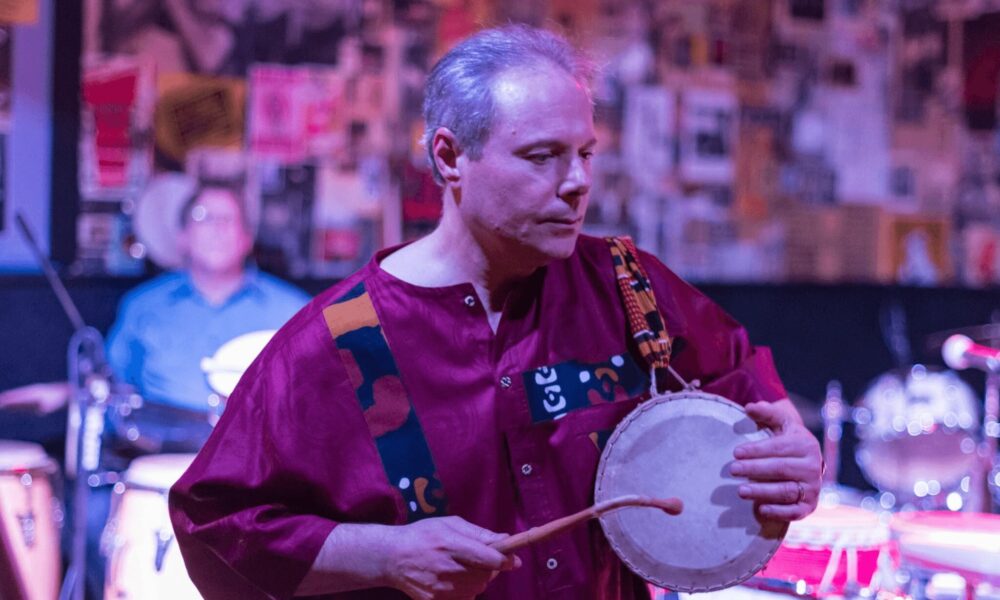

Today we’d like to introduce you to Rich Holly.
Hi Rich, thanks for sharing your story with us. To start, maybe you can tell our readers some of your backstory.
At age 6 I saw a drummer (this was pre-Beatles, I’m not sure who it was!) on a television program and asked my parents if I could get a pair of drumsticks. A couple of days later, on his way home from work, my father stopped at a music store and bought a pair of drumsticks for me. I immediately went to my room, used the seat of my desk chair as a snare drum and the back of the chair as a cymbal, and added two upturned plastic trash cans as my tom toms. This was my first drum set and I loved figuring out how to play along with the songs coming from my radio.
I grew up in an extremely music-friendly town, about 25 miles from New York City. Several professional musicians in NYC lived in my hometown, and we had a really terrific community orchestra. My elementary school band director was a first-call tuba player for Broadway musicals, and he helped me greatly with understanding more about drum set and the role of a drummer in a group. I started taking private lessons at age 12, studied with two absolutely terrific teachers in my town (Henry Gates and Howie Mann), and had great band and orchestra directors in junior high and high school who exposed me to numerous styles and were truly supportive. I also played in the Long Island Youth Orchestra, and exposure with that great ensemble led to gigs in NYC playing ballets, operas, and for film scores while I was still in high school.
I went to undergraduate school for music performance at the Crane School of Music at SUNY Potsdam where I studied percussion with the legendary Jim Petercsak. I had so many wonderful professors and student colleagues there, I simply cannot imagine a better place for me to have been! I then went to graduate school, also for performance, at East Carolina University, where I studied with the incredibly musical Harold Jones. While in grad school I played with local jazz and rock bands, locally-produced and touring musicals, and was a frequent substitute and extra player for the North Carolina Symphony in Raleigh.
My first full-time job was as head of percussion and jazz at Western Colorado University, and following my three years there I became a percussion professor at Northern Illinois University, where I remained for 32 years. Eventually moving into administrative roles, my last 8 years at NIU I served as the Dean of the College of Visual and Performing Arts.
Leaving NIU in 2015, I began serving NC State University as the Executive Director for the Arts, leading an arts organization that engages with over 8500 students a year! I retired from higher education in 2023 and am now performing, recording, and composing full-time, and making time to serve as a consultant to non-profit and higher education arts organizations and individual employees.
Throughout all my teaching and administrative roles I was able to maintain an active performing, writing, and composing career, with performances across the US and in several other countries, and music, articles, and books published and sold around the world. I’m grateful to my colleagues and former students for all I learned from them and which has allowed me to have such a rewarding career!
I’m sure it wasn’t obstacle-free, but would you say the journey has been fairly smooth so far?
It has not been a smooth road, and I have friends and family to thank for the great support that made it possible to overcome obstacles. Some obstacles have been health-related, some personal life-related, and others have been a struggle professionally.
As for the professional struggles, something I had to learn to deal with was being told “no” by an upper administrator when I knew in my heart that “no” was the wrong answer to an idea I had. In some cases I fought for what I believed to be right (not always but sometimes then earning a “yes!”), and in other cases I decided it wasn’t the right time or the right issue to fight over and I dropped it. Continuing to evaluate which causes are worth pushing for is something we all need to keep working on. For me, the driving questions were “Is my idea going to help students in ways they’re not now being helped?” “Will my idea help the institution is some way or ways?” If I could answer yes to those, then I continued to push and fight. Those times when I still didn’t get a “yes” answer were tough and demeaning, but I knew that I still worked at a great institution and could fall back on how fortunate I was to have the students and colleagues I did have.
Thanks – so what else should our readers know about your work and what you’re currently focused on?
While I ended up spending 29 of my 43 years in higher education as an arts administrator, in my heart (and where my passion is) is that I’m a musician. I am a performing percussionist, with composition, arranging, authoring, and recording credits as well. As long as I can remember I’ve enjoyed an environment in which I can experiment, whether that’s a new music style, a new set of instruments, trying new forms of practicing, stretching my limits as a composer, or what have you. I had the honor of performing several US and world-wide premieres of works by other composers, and my performing and teaching have led to provide master classes, performances, and residencies at festivals, major venues, and well-known music schools in several countries.
One thing that sets me apart from others is having gained some business acumen at an early age. My mother was the administrative assistant to the CEO of one of the world’s largest publishing houses. She taught me budgeting and contractual skills at a very young age, and those have served me extremely well in many endeavors.
An endeavor of which I’m particularly proud is my work with the Percussive Arts Society (pas.org). I became a member as a freshman in college, joined a committee during my years teaching in Colorado, became associate editor of the society’s magazine, and became a member of the Board of Directors in the mid-1990s. Through all those experiences I was then able to become an officer of the society, leading to two years as President (2005, 2006), during which we proposed and gained unanimous support of the Board to move the organization’s headquarters and museum to Indianapolis. During my presidency the organization reached its highest membership (over 9000 world-wide), thanks to the great collaborative team work of the other officers, the executive director, and other staff members.
In that role, as well as my university administrative roles, the business acumen I picked up earlier in life became crucial, and it allowed me to learn more — much more — about both business and about serving others.
Is there any advice you’d like to share with our readers who might just be starting out?
For those just starting out, I urge you to find a balance! Yes, practice a lot. Listen a lot. Support other musicians a lot. Compose. Arrange. Dream. Imagine. BUT do NOT forget that you are human! You need a break — and you need a break each and every day. Burn out among musicians is real, and you can at least minimize (if not outright avoid) it by taking time for yourself away from your artistry every day. For me, it was watching the original Star Trek series on reruns with my roommates after dinner, allowing us to catch our breath before we went back to the music facility to practice or rehearse more.
Determine for yourself what best allows you to relax — a walk in nature, meditating, yoga, alone time, listening to specific music genre, wandering an art museum. It doesn’t matter what it is, as long as it provides you with a release from the previous part of the day’s stress. Aim for one to two hours of this each day, and you’ll find that your practicing and focusing are much more centered.
Contact Info:
- Website: https://www.richhollymusic.com/
- Facebook: https://www.facebook.com/rich.holly.10/
- Linkedin: https://www.linkedin.com/in/richholly/
- Youtube: https://www.youtube.com/channel/UCuThYksICFdcX4NxHiB3a2g
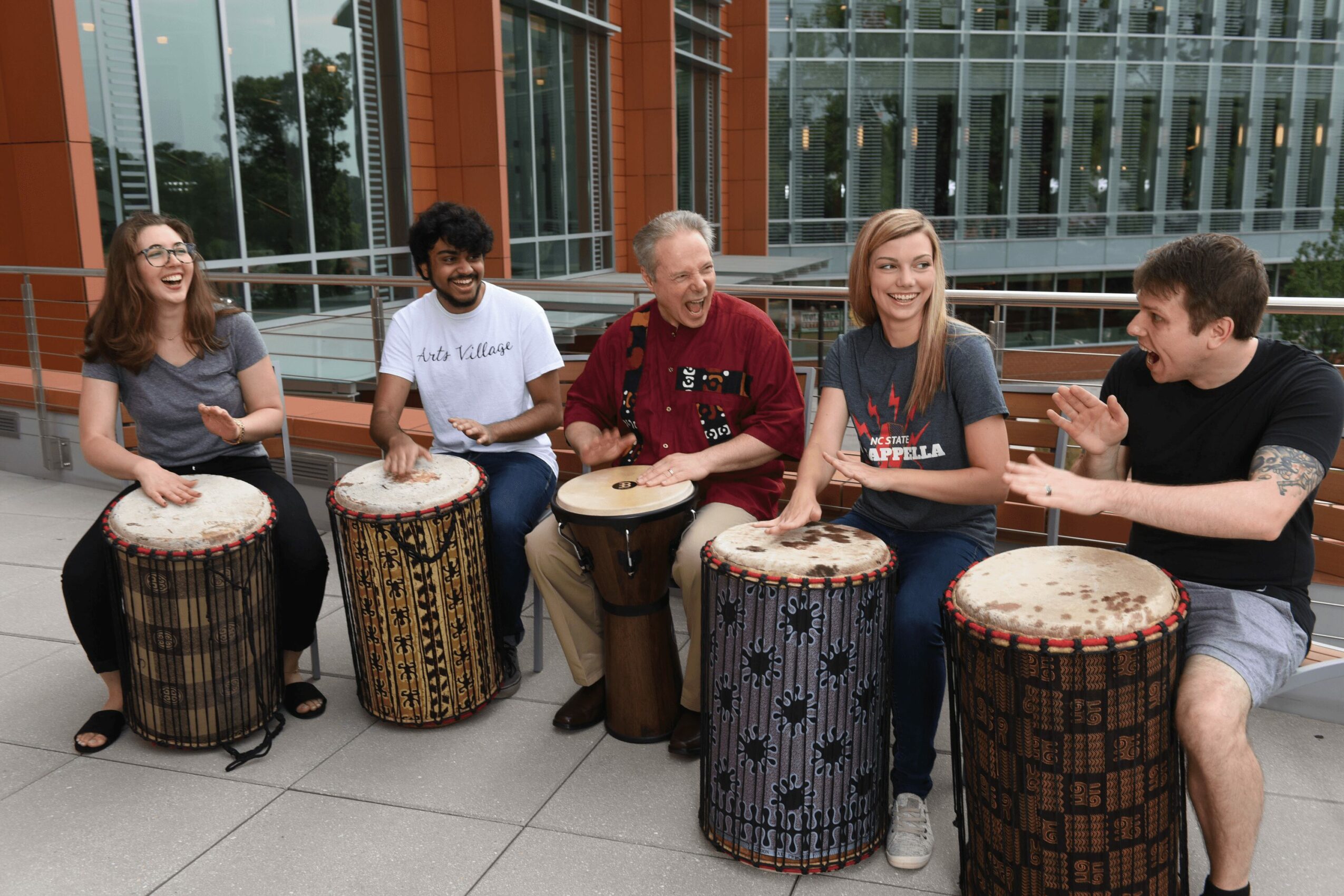
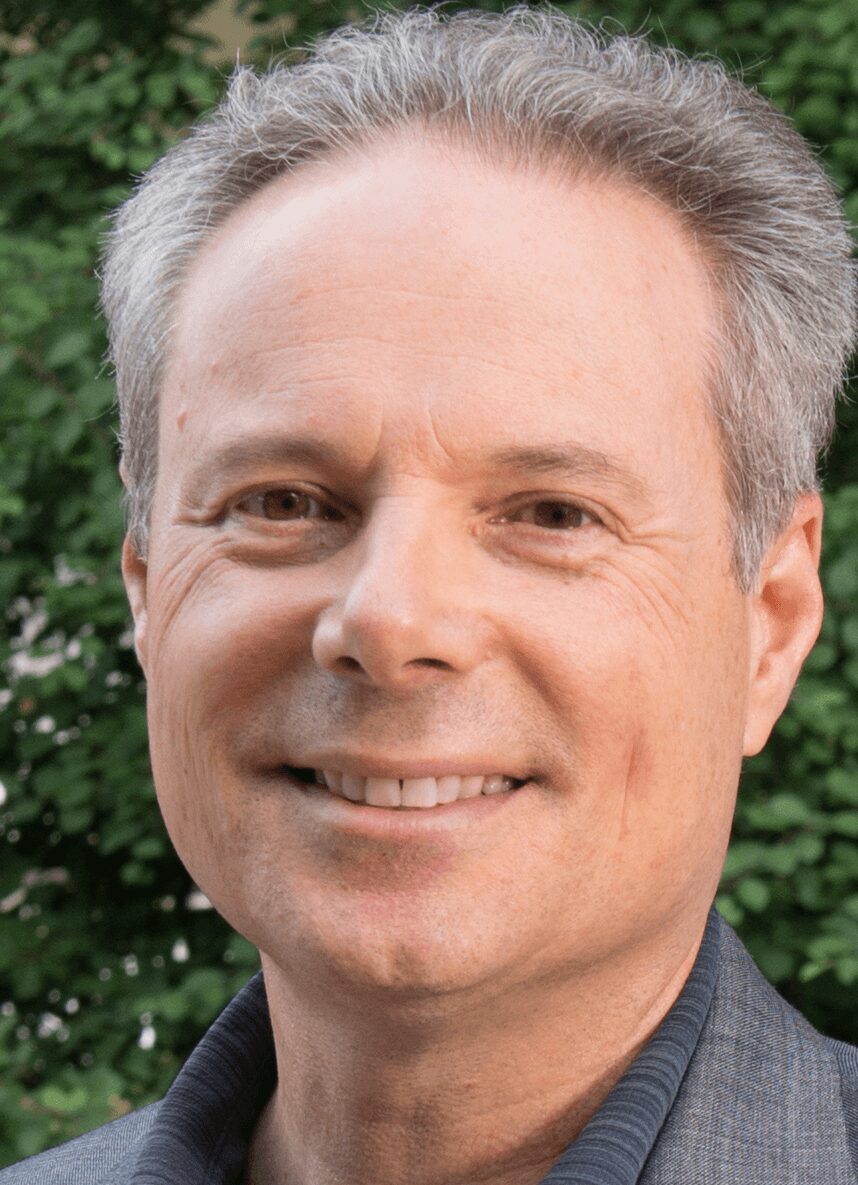
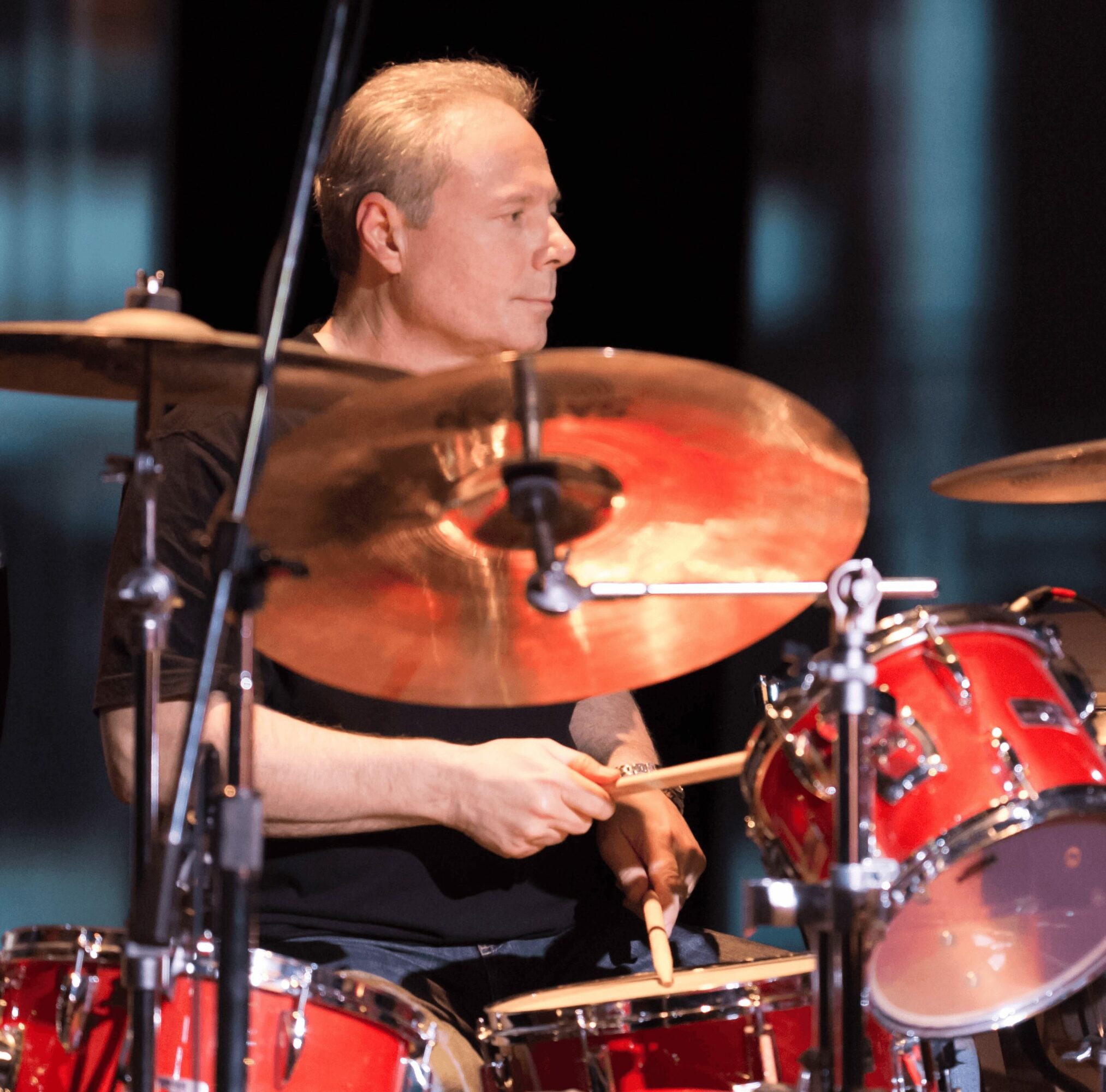
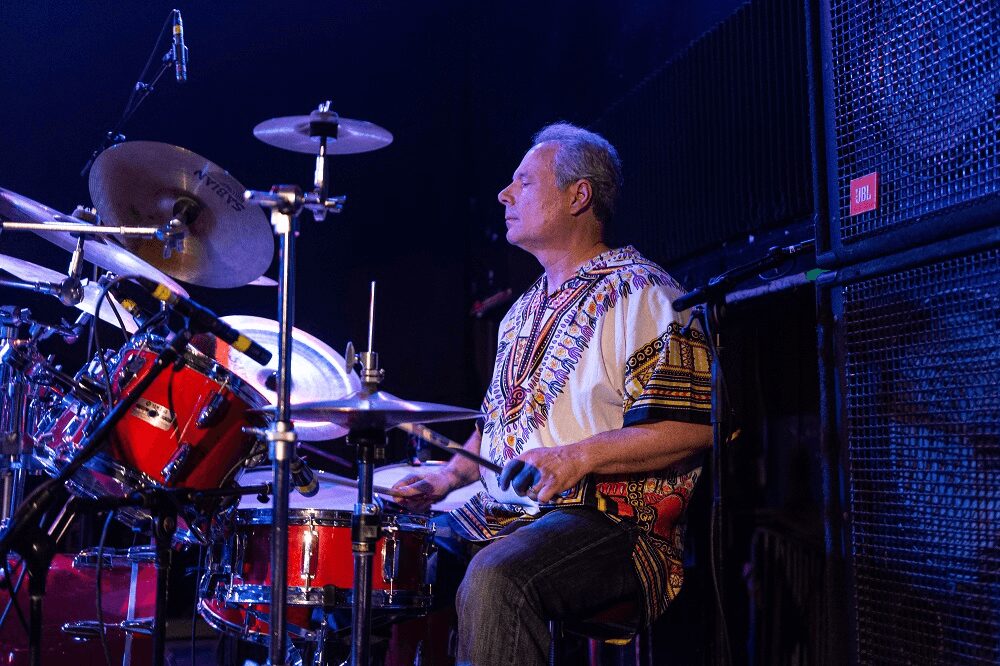
Image Credits
Rich with Lunna – Robin Harris Drum Circle – Becky Kirkland Head Shot – Jay Orbik Quadrivium 2017 – Robert Davezac Quadrivium 2019 – Robert Davezac












